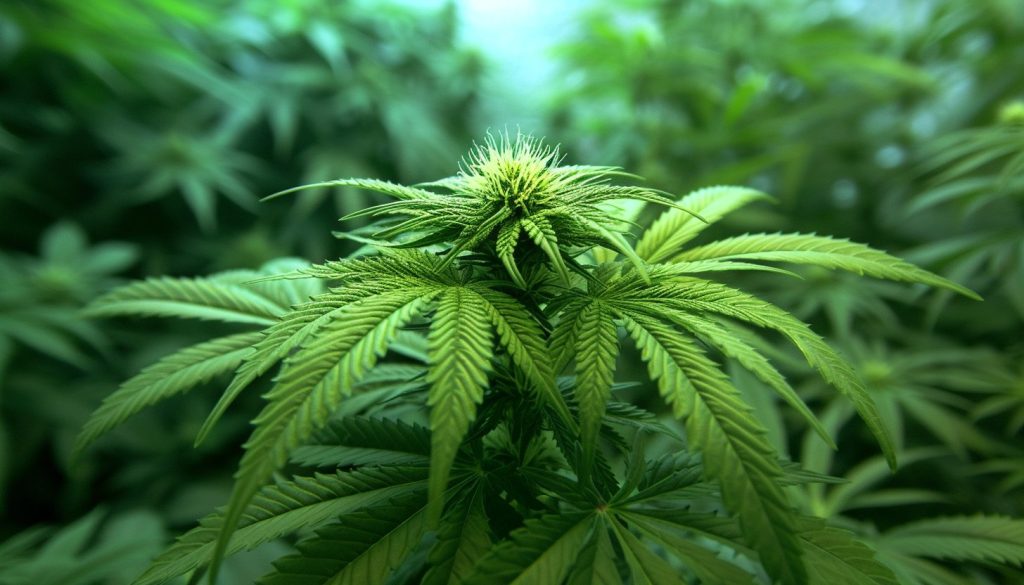In a context where legislation on cannabis and its derivatives is evolving rapidly across Europe, it is interesting to study the German CBD law. Indeed, if certain countries totally or partially authorize the use of THC and CBD, theGerman legislation continues to evolve. In this article, we will therefore look at the specifics of the law regarding the legal rate of CBD in Germany.
Sommaire
ToggleGerman CBD law: a precise regulatory framework
In Germany, as in other European countries, the level of tolerance regarding narcotics varies according to the levels of government, between federal state and regional states (Länder). However, a common directive defines the general framework applicable to the entire German legislation.
What are we talking about: CBD and THC
Before delving into the intricacies of German CBD law, it is important to start with some basic reminders. Cannabis includes two main active compounds:
- THC (tetrahydrocannabinol) : psychoactive substance responsible for the effects of cannabis on the user, and in particular its recreational aspect;
- CBD (cannabidiol) : a non-psychoactive molecule that has attracted attention for its potential medicinal properties, particularly in the treatment of chronic pain, anxiety and epilepsy.
The distinction between these two compounds is essential to understand the specificities of German legislation in this area.
CBD as a food supplement or cosmetic derivative
Products containing CBD can be sold legally in Germany as long as they are for external use. This concerns, for example, massage oils or creams, lip balms, anti-dandruff shampoos, etc. These products must meet strict manufacturing and labeling standards, particularly with regard to the THC level, which must not exceed 0.2%.
Legislative developments concerning “new foods”
In a recent update to the “novel food” regulations, Germany, like other European countries, now considers that CBD products can fall into this category if they meet certain criteria:
- Have a low THC level (less than 0.2%);
- Contain less than 5% CBD;
- Be manufactured in accordance with GMP (Good Manufacturing Practices);
- Have the necessary information material on the characteristics and limitations of use of the product.
CBD flowers: a complex situation
The sale of CBD flowers in Germany is a controversial subject, since the legislation does not explicitly define their status. Some suppliers continue to offer CBD flowers on the market, claiming that they are intended for ornamental use (in potpourris for example) or industrial use (fiber production), and not for consumption.
The role of regional states in law enforcement
Although the German CBD Act establishes a general framework, it is primarily the regional states that oversee the implementation of drug regulations. This means that each state may have its own approach to CBD: some regions may allow its sale without problems, while others may impose stricter controls or even ban the sale of CBD flowers altogether.
Recent court decisions
Faced with this ambiguity in German CBD law, judicial decisions have been issued recently. Thus, the Rhine administrative court declared in September 2020 the sale of CBD flowers illegal on German territory.
Legal alternatives for consuming CBD
For people wishing to benefit from the potential benefits of CBD in Germany, it is advisable to favor the use of duly approved products such as oils, tinctures or capsules for medicinal use. These forms of CBD use are generally considered legal as long as they meet the criteria set out by the German legislation, particularly regarding the level of THC present.
Considerations on the quality of available CBD products
In order to avoid any problems with the German authorities and ensure the safety and effectiveness of the products consumed, it is preferable to find out about the production and extraction methods used by the manufacturers. Indeed, in a growing market where controls may be limited, there may be significant variations in terms of the quality and purity of the cannabidiol extracts available.
Importing CBD from other European countries
The regulatory framework surrounding the importation of CBD products into Germany varies depending on the country of origin, taking into account existing trade agreements between European states. Importers must nevertheless ensure that they scrupulously respect German customs requirements in terms of THC levels and other specific conditions.



